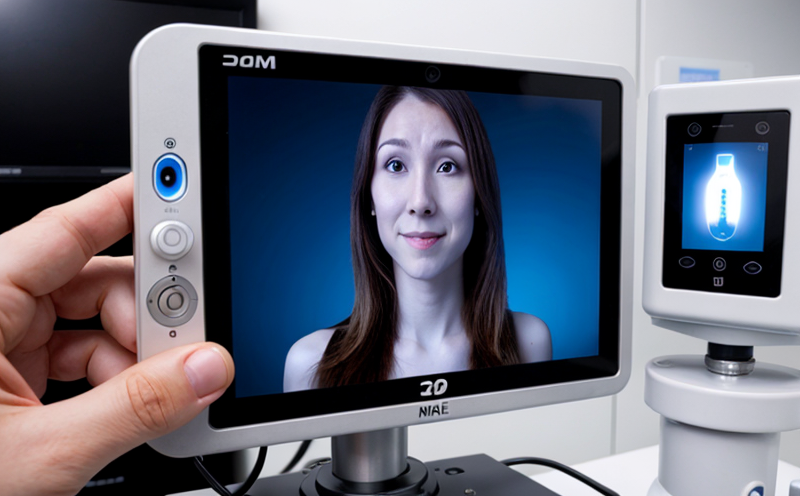ASTM F2977 Shoulder Prosthesis Wear Simulator Testing
The ASTM F2977-18 standard specifies a procedure for determining wear characteristics of shoulder prosthesis components using an in vitro wear simulator. This test is critical for the medical device industry, especially when developing and validating new implantable devices aimed at improving patient outcomes by enhancing durability and reducing complications.
The ASTM F2977-18 protocol involves simulating the dynamic motion of a shoulder joint through a series of cyclic movements that mimic real-life activities such as reaching for objects or lifting weights. The test uses a specialized wear simulator apparatus designed to replicate these motions in an accelerated manner, allowing researchers and manufacturers to assess how well the prosthesis will withstand typical use over time.
The primary components tested under this standard include the socket (glenoid) component of the shoulder prosthesis. During testing, the prosthetic component is subjected to a series of predefined cycles that simulate various activities. The test parameters are carefully controlled and standardized to ensure consistent results across different laboratories. These conditions typically encompass factors such as load magnitude, frequency of motion, and duration.
Specimen preparation plays a crucial role in ASTM F2977 testing. Prior to testing, the prosthetic components must be cleaned thoroughly according to established protocols to remove any surface contaminants that could affect test results. The specimens are then mounted onto the wear simulator apparatus, ensuring they are aligned correctly for accurate simulation of real-world conditions.
The testing process itself involves running the specimen through a series of predefined cycles designed to replicate typical patient activities. This includes raising and lowering the arm at specific angles, rotating it in various directions, and performing repetitive lifting motions. The simulator measures wear debris generated during these cycles, which provides valuable insights into the wear mechanisms affecting the prosthesis.
Once testing is complete, detailed reports are generated summarizing all relevant data collected throughout the process. These reports typically include information on the amount of wear observed, any changes in surface roughness or geometry, and levels of lubricant breakdown if applicable. The results help manufacturers make informed decisions about design modifications needed to improve device performance.
Compliance with ASTM F2977-18 ensures that implantable medical devices meet rigorous quality standards set forth by regulatory authorities worldwide. By adhering strictly to this standard, companies can demonstrate their commitment to producing safe and effective products while also ensuring they remain competitive within the global market.
Why It Matters
The importance of ASTM F2977 shoulder prosthesis wear simulator testing cannot be overstated. Accurate evaluation of these components ensures that implantable medical devices are not only safe but also highly effective in enhancing patients' quality of life. Regular monitoring through this standardized procedure helps identify potential issues early on, allowing manufacturers to address them before they become critical problems.
By incorporating ASTM F2977-18 into their development processes, companies can gain a competitive edge by producing more reliable and durable products. This standard also fosters trust among healthcare providers who rely heavily upon these devices for treating patients suffering from various musculoskeletal conditions.
In addition to its direct benefits for product development, adherence to ASTM F2977-18 contributes significantly towards maintaining high standards across the entire medical device industry. It sets a benchmark against which all similar tests should be conducted, thereby promoting consistency and comparability among different manufacturers' offerings.
Quality and Reliability Assurance
- Consistency: ASTM F2977 ensures that each test run adheres strictly to predefined protocols, leading to consistent results across multiple trials. This consistency is essential for accurate evaluation of wear characteristics.
- Durability Assessment: By simulating real-world usage conditions in an accelerated manner, this method allows manufacturers to assess how long a particular prosthesis will last under normal circumstances without requiring lengthy clinical studies.
The ASTM F2977 procedure provides a robust framework for evaluating the quality and reliability of shoulder prostheses. Through standardized testing methods, it helps ensure that only high-quality products reach the market, ultimately benefiting both patients and healthcare providers alike.
Environmental and Sustainability Contributions
- Eco-friendly Materials: The development process for ASTM F2977 encourages the use of biocompatible materials that are less harmful to the environment. These materials not only enhance patient safety but also contribute positively towards sustainable practices.
- Energy Efficiency: By identifying more efficient designs early in the product lifecycle, manufacturers can reduce energy consumption during production and subsequent use phases.
The ASTM F2977-18 standard plays a significant role in promoting eco-friendly practices within the medical device industry. Its emphasis on sustainability helps drive innovation toward greener solutions while simultaneously improving patient care outcomes.





